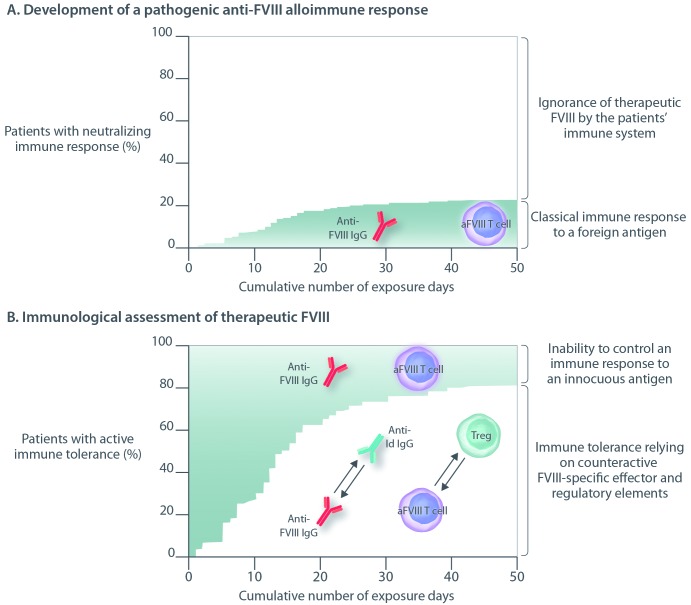Figure 2.
Immune response to factor VIII in patients with severe hemophilia A. (A) Classically, deciphering the immunogenicity of therapeutic factor VIII (FVIII) in patients with severe hemophilia A is addressed by investigating the reasons for which 20-30% of the patients develop an immune response to exogenous FVIII, while the remaining patients do not (adapted from Gouw et al.).24 (B) We propose that the immune system of all patients treated with FVIII reacts to the clotting factor. In 70-80% of the cases, this immunological assessment of therapeutic FVIII results in the establishment of active immune tolerance that relies on an equilibrium between FVIII-specific immune effector and regulatory elements. However, for reasons that are yet to be deciphered, the remaining patients fail to turn on appropriate anti-inflammatory/tolerogenic mechanisms. Anti-FVIII IgG: anti-factor VIII immunoglobulin G; aFVIII T cell: factor VIII-reactive T cell; Treg: regulatory T cell; anti-Id IgG: anti-idiotypic immunoglobulin G.

